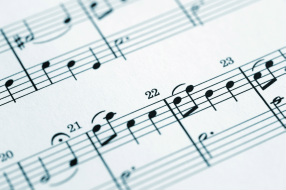
MUSIC APPRECIATION GROUP
The Exeter Forum's Music Appreciation Group had to cease activities when the pandemic struck, although at the time of writing it is due to restart shortly. The plan is to operate as it did previously, meeting monthly in a member's home, usually on the last Monday of the month. At each meeting a programme of music is presented for those attending to comment upon. Usually the pieces selected will follow a common theme. While originally centred on classical music, gradually the genres of music that have been heard and discussed has become much wider.
New members are welcome. Come with your ideas. We can often help in finding the relevant CDs or DVDs
